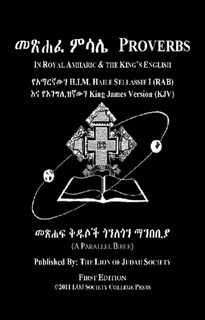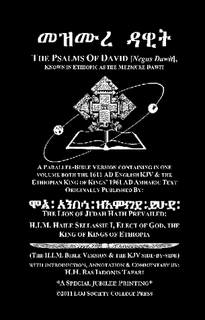Is it a shame for men to have long hair?
1 Corinthians 11:14:
Does not even nature teach you that it is a shame for a man to have long hair?
Numbers 6
5 ‘All the days of the vow of his separation no razor shall come upon his head; until the days are fulfilled for which he separated himself to the Lord, he shall be holy. Then he shall let the locks of the hair of his head grow.
6 All the days that he separates himself to the Lord he shall not go near a dead body.
Is it a shame for a man to have long hair? If so, who considers it a shame, and why is it considered a shame? The answer to these questions and others are necessary to determine whether men may or may not wear long hair today.
There are some Christians who rightly observe that the Bible says, “It is a shame for a man to have long hair.” What they don't realize is that they are quoting only half of the verse. 1 Corinthians 11:14 rhetorically asks, “Does not even nature teach you that it is a shame for a man to have long hair?” The meaning of the word nature in this verse is crucial to its interpretation. We must also define what is considered long and what is considered short. Finally any view on the subject must explain why God instituted the Nazarite vow (Numbers 6).
Before we discuss what nature means, it must first be said that men having long hair was not the norm in Biblical times. The very fact that God commanded the Nazarite not to cut his hair suggests that men in general cut their hair. Long hair was the exception. Men did grow their facial hair however (2 Sam. 10:4, 5). For some reason Jesus is perceived to have long flowing hair. It is unclear how that perception arose, but it is possibly due to an obfuscation of the terms Nazarene and Nazarite. A Nazarite was the one with long hair e.g. Samson, Samuel. Jesus was a Nazarene, one who came from Nazareth. I personally do not believe that Jesus had long hair, of course I wasn’t there.
The Meaning of Nature
One possible understanding of nature is as follows.
Women’s hair naturally grow long whereas men’s hair don’t. Men’s hair naturally fall off at a certain age whereas women’s hair don’t. This is how nature deems it a shame for men to have long hair. This is the meaning of nature.
I cannot begin to detail how many things are wrong with that interpretation. First of all it is not a fact that men’s hair don’t naturally grow long. Men’s hair don’t grow long because they cut it. It is a matter of choice not nature. If they don’t cut it, of course it will grow long. Secondly male pattern baldness was not God’s design. It is the result of the fall. I don’t think men’s hair would have fallen had Adam not sinned. Thirdly the above interpretation does not take into account the Nazarite vow. It wasn’t a shame for Samson to have long hair. Most people superficially pass off the Nazarite vow as an exception to the rule. Anything that does not fit into their predetermined system of beliefs is an exception. That is very superficial and intellectually dishonest.
Another possible definition of nature is the nature of God. But it is very clear from reading the Bible, and from common sense, that God does not consider it a shame for men to have long hair. Otherwise He would have never instituted the Nazarite vow. If the very nature of God dictated that it were shameful for men to have long hair, then there can be no exception. For example, the nature of God dictates that adultery is a sin, therefore there can be no exception. There are no circumstances under which adultery is ever excusable or tolerable to God. If God, because of his nature, hated long hair on men, then he also hated long hair on Samson. But the fact is that with all of Samson’s loose living, he only lost God’s favor when he cut his hair. Samson was a Nazarite who killed 1000 Philistines with the jawbone of an ass (Judges 15:15-17). A Nazarite was not supposed to come in contact with anything dead (Numbers 6:6). Samson did not even lose God's favor then. Only when he cut his hair. Also from a common sense perspective, God is more interested in the state of our hearts than our physical appearance. So it is clear that the nature of God is not what Paul had in mind when he penned 1 Cor. 11:14.
In order to understand the meaning of nature, we need to look at the flow of thought in 1 Cor 11. Paul was conducting a discourse on women and head coverings. Note that many believers still believe it is a shame for a man to have long hair despite the fact that women in their church do not cover their heads. I also do not believe the head covering command applies today, but at least I am consistent in my belief system.
Paul was explaining why women in the church, in his day, should cover their heads when they prayed or prophesied. Note that a physical head covering was intended here. Some people select one verse (1 Cor. 11:15), discard the rest and conclude that the head covering is actually the woman’s hair. This is based on a misunderstanding of the structure of the chapter and a reluctance to give the Bible any serious study. If the head covering referred to a woman’s hair, then verses 5 and 6 make very little sense. This is how those verses would read:
Every woman who prays or prophesies while bald headed dishonors her head because it is just as if she were bald. If a woman is bald, let her be bald.
And why must the covering only be on specifically when she prayed or prophesied? Could she be bald one minute, suddenly have long hair when she prays, then bald again when she says amen? These verses only make sense if a physical head covering is intended.
In making his case for women wearing the head covering in church, Paul drew an analogy between the church and the secular world, or should I say between the spiritual world and the natural world. In nature (the natural or secular world), women have a natural covering and men didn’t. This was not because of any natural biological process, but just the social practice of the time. In fact it is believed that only prostitutes deviated from that norm. That is why men with long hair and women with short hair (or bald) were associated with prostitution. This was why nature or the natural/secular world deemed it a shame for men to have long hair, and also for women to be bald. The analogy Paul was driving at was this. In the natural world, women have long hair and men short, and analogously in the spiritual world, women should have a physical head covering and men shouldn’t. This is where the issue of men having long hair entered the fray.
The Reason for the “Command”
The nature Paul referred to was the secular customs of the time. Not biological nature or God’s nature, but social nature. Paul was trying to get the believers to adhere to the social customs of their times to avoid creating stumbling blocks to others. We must understand that there are only two commands in the New Testament - love God and love each other (Matthew 22:36-40). Every other command falls under those two main headings. There are many commands in the Bible which were temporal. Even God instituted a law concerning divorce, but He never intended it to be permanent. Jesus explained the reason why God gave that law, and he amended it. That did not contradict the initial law God gave, it simply recognized that the OT divorce law was only for a time.
Similarly we have NT “laws” which were based on temporary social situations. Culture never remains constant. These little “laws” were only means of facilitating the main two. Although these “laws” may only be applicable to a particular people for a particular time, the main laws never change: love God, love each other. In ancient Corinth, Paul discouraged men from having long hair in keeping with the second greatest command – love your neighbor as yourself. The sight of men with long hair would definitely have been an offence to other believers. The same is not true today. Long hair is no longer associated with male prostitution or any pagan activity. As a result, social nature no longer considers it a shame for a man to have long hair.
Some may argue that it does offend people when a male believer has long hair. To that I add that Jesus offended the Pharisees, and He was not sorry (Matt. 15:12-14). The Biblical definition of offence is different from our modern definition of the word. Today an offence is something that hurts someone else’s feelings or insults their religious beliefs or ethnicity or what have you. In the Bible, an offence is a stumbling block placed in the way of a new believer that causes him or her to stop following Christ. There are those who have no intention of following Christ but are just looking for faults e.g. the Pharisees. Jesus had no problem offending them. Then there are those who are just petty. They are flimsy and get offended (modern definition) for everything. It may require tact to deal with such people, but this is not the Biblical definition of offence.
Then there is the third category of offended people – those who genuinely want to follow Christ but abandon their faith when they see men in church with long hair. How many people actually fit the last category? Very little if any. Why is that? It is because our culture is different from the Corinthians’. No one today could ever see a man in church with long hair and arrive at the conclusion that the church is encouraging male prostitution - "Let me stay far away from this". The circumstances surrounding 1 Cor. 11 have changed. If per chance, there are some weak genuine Christians who stumble because they see a strong Christian man with long hair, then it is incumbent on the strong Christian to cut his hair.
How Long?
One last concern is Deut. 22:5. This scripture encourages gender distinction regarding our physical appearances. It is unclear what the reasons were for God giving this command, possibly to differentiate Israel from the pagan nations. There may have been other reasons. Essentially men must look like men and women must look like women. Some churches take a hard line interpretation of this scripture and prohibit women from wearing pants. Exactly at what point pants became men’s clothing, I don’t know. In Biblical times men wore what looked like skirts. They did not wear Levi's. The major apparent distinction, I think, between men and women was facial hair. This is why David’s soldiers were so ashamed when the enemy shaved half their faces (2 Sam. 10:4, 5).
It is also reported that women in China wore pants long before it became the customary attire for men in the western world. So there is no rule which makes pants men’s clothing and not women’s. In any case modern society doesn’t recognize any such rule. Tying this scripture into our previous discussion, even if a man is to have long hair, he must avoid looking like a woman. However this is not really a problem since the hairstyles that men with long hair wear are different from those which women do. And similarly it is no longer a shame for women to have short hair, as long as they don’t look like men. Again this is hardly ever the case.
Summary
Back in the time of Paul, society (social nature) considered it a shame for men to have long hair and for women to be bald. Modern society does not. Neither God’s nature nor biological nature considers it a shame. Adhering to the social norms of their time was a form of keeping the second greatest commandment. Those social norms have changed. Therefore it can be concluded that men may wear long hair if they so desire, as long as they avoid looking like women and vice versa.
RELATED ARTICLES:
Should women cover their heads in church?
Women in ministry
Should women submit to their husbands?
Since you’re here …
… we have a small favour to ask. More people are watching LOJSociety videos and learning more than ever but since we don't apply advertise revenues across our media outlets we need your support. And unlike many organizations, we haven’t put up a paywall – we keep our Rastafari Educational Resources available and as open as we can. So you can see why we need to ask for your help. The LOJSociety Rastafari Groundation takes a lot of time, money and hard work to produce. But we do it because we believe our perspective matters – because it might well be your perspective, too.
"I appreciate there not being a paywall: it is more democratic for the media to be available for all and not a commodity to be purchased by a few. I’m happy to make a contribution so others with less means still have access to information"
If everyone who watches our videos, reads our articles, who likes it, helps fund it, our future would be much more secure. For as little as $1, you can support the LOJSociety – and it only takes a minute. Thank you.![]()
If you enjoy the resources & services provided by this ministry, then support us by giving a small gift.
For as little as $1, you can support the LOJSociety – and it only takes a minute. Thank you.![]()

ALLIANCE AND ALIENATION: Ethiopia and Israel in the Days of Haile Selassie
Imperial exile: Emperor Haile Selassie in Britain 1936-40
King of Kings: The Triumph and Tragedy of Emperor Haile Selassie I of Ethiopia
The Mission: The Life, Reign & Character of Haile Sellassie I
The Betrayal of Ethiopia: A Remarkable Nation Once Held in High Regard by Assefa Adefris (1997-06-03)
FAIR USE NOTICE:
This site may at times contain copyrighted material the use of which has not always been specifically authorized by the copyright owner. We are making such material available in our efforts to advance understanding of environmental, political, human rights, economic, democracy, scientific, and social justice issues, etc. We believe this constitutes a 'fair use' of any such copyrighted material as provided for in section 107 of the US Copyright Law. If you wish to use copyrighted material from this site for purposes of your own that go beyond 'fair use', you must obtain permission from the copyright owner.






























































































































